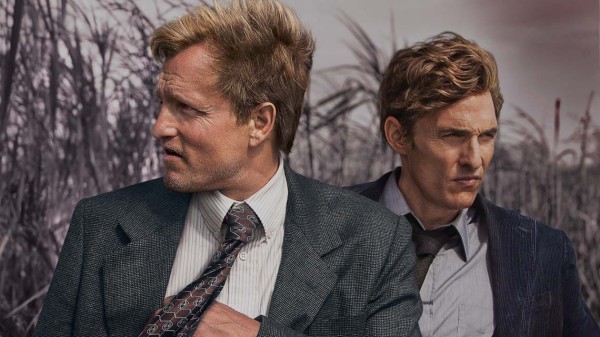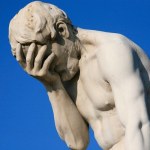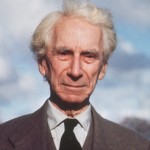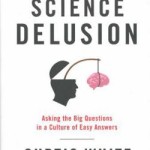Detectives of Despair
by Matthew Becklo
Filed under Atheism
In the HBO series True Detective, two investigators of a high-profile murder traverse a desolate Louisiana landscape, looking for clues that will help crack the case. Soon, the conversation about the darkness of their State drifts into a conversation about the darkness of their state—and an investigation into a murder suddenly morphs into an investigation into everything.
“It’s all one ghetto man,” the self-proclaimed pessimist Rust Cohle (played by Matthew McConaughey) declares. “Giant gutter in outer space.”
Cohle’s partner Marty Hart (played by Woody Harrelson) asks Cohle about the crucifix hanging over his bed in an otherwise empty apartment. He’s a Christian, right?
Not exactly. “That’s a form of meditation,” Cohle responds. “I contemplate the moment in the garden. The idea of allowing your own crucifixion.” This unexpected explanation leads to an even more unexpected confession:
“I think human consciousness is a tragic misstep in evolution. We became too self-aware; nature created an aspect of nature separate from itself. We are creatures that should not exist by natural law. We are things that labor under the illusion of having a self. A secretion of sensory experience and feeling programmed with total assurance that we are each somebody, when in fact everybody’s nobody. I think the honorable thing for our species to do is deny our programming, stop reproducing, walk hand in hand into extinction—one last midnight, brothers and sisters opting out of a raw deal.”
(Side note: if only more TV shows had writing like that!)
Cohle is stunned; this is the first time he’s heard his partner say more than two words, and it makes his blood run cold. If all that’s true, why does he even bother getting out of bed in the morning?
“I tell myself I bear witness,” Cohle explains, “but the real answer is that it’s obviously my programming. And I lack the constitution for suicide.”
A like-minded character from another story—“White” from Cormac McCarthy’s play, The Sunset Limited—does not lack that constitution. In fact, we come to learn about his equally dark world view only after he tries to jump in front of a train and is pulled back last minute by a stranger.
White’s philosophy, he insists, is not some puerile rebellion against faith, nor some acute depression brought on by life’s hardships. It is, he explains in his calm but exhausted way, the truth.
“You give up the world, line by line,” White explains patiently to this stranger, who tries (and fails) to persuade him to live. “You become an accomplice to your own annihilation. There’s nothing you can do about it. Everything you do closes a door somewhere ahead of you. Finally, there’s only one door left. I don't regard my state of mind as some pessimistic view of the world; I regard it as the world itself. Evolution cannot avoid bringing intelligent life ultimately to an awareness of one thing above all else, and that one thing is futility. . . If people could see the world for what it truly is, see their lives for what they truly are without dreams or illusions, I don’t believe they could offer the first reason why they should not elect to die as soon as possible.”
As is often the case, though, Shakespeare said it first—and said it best. Cohle and White’s world view reflects those unforgettable lines from Macbeth:
“Tomorrow, and tomorrow, and tomorrow,
Creeps in this petty pace from day to day
To the last syllable of recorded time,
And all our yesterdays have lighted fools
The way to dusty death. Out, out, brief candle!
Life's but a walking shadow, a poor player
That struts and frets his hour upon the stage
And then is heard no more: it is a tale
Told by an idiot, full of sound and fury,
Signifying nothing.”
It’s tempting to do some detective work ourselves. What is this despair these characters are describing? Where does it come from?
It seems, at first blush, a lot like the despair described by existentialists like Jean-Paul Sartre. But Sartre wrote of the dizziness of total freedom; what Cohle and White describe sounds more like total slavery. Besides, there are plenty of Christian existentialists: Pascal, Kierkegaard, Marcel. What Cohle and White describe seems to preclude, by definition, any glimmer of God or the afterlife.
So is this the despair of atheism? Could atheism really be as bleak as all that?
In one important sense, no. In 2009, an ad campaign was launched in London reading: “There’s probably no God. Now stop worrying and enjoy your life.” Apparently, the news that there’s no God comes as a great relief to a lot of people. But why? As Czeslaw Milosz saw it, “A true opium for the people is a belief in nothingness after death—the huge solace of thinking that for our betrayals, greed, cowardice, murders we are not going to be judged.” Some might go further and say with Dostoevsky that if God does not exist, everything is permitted; but in the meantime, it’s enough to say that if God does not exist, nothing is damnable.
Secondly, atheism means the absence of belief in the existence of a God or gods. That’s a broader swath than most Christians are comfortable admitting. It includes the darkness of Friedrich Nietzsche, but also the light of Thomas Nagel, whose recent book Mind and Cosmos sided with creationists in arguing that “the neo-Darwinian conception of nature is almost certainly false”—leaving fellow atheists more than a little incensed.
And here, Watson, is the key. There is a worldview that necessitates atheism, but resists its longitude up toward beauty and goodness, that conjures all the darkness of existentialism, but without its latitude over to God and the soul.
That worldview is materialism: the belief not only that God and the soul don’t exist, but that neither does anything immaterial. And it’s the materialistic reduction—not just believed intellectually, but lived out practically—that seems to fuel these characters’ despair.
Why? First, because materialism undercuts everything we cherish as human beings. As a new commercial reminds us, passion, love, and beauty—these are what we all stay alive for. But materialism can’t account for these experiences (or our free pursuit of them) in a way that makes them rise above happy illusions; it reduces all our life to synapses and survival, leaving us with the cold world Cohle can’t bear.
But materialism also undercuts our reason. If meaning, and the knowledge we build from it, is the epiphenomenal froth spewed from electrochemical signals in the brain, what guarantee do we have that what we think and say is reliable, or even sensible? Evolution is no guarantor of sense—only survival. No wonder the erudite White sounds so irrational to us: he’s pushed his rationality so far it self-destructs.
“As an explanation of the world,” Chesterton wrote in Orthodoxy, “materialism has a sort of insane simplicity. It has just the quality of the madman's argument; we have at once the sense of it covering everything and the sense of it leaving everything out.” Our loves, our choices, even our reasons—all of these materialism leaves decimated.
We can see how, after such a reduction, pleasure becomes paramount; it’s the last remaining glimpse out of the prison of materiality. But that pursuit, like a struggle in quicksand, only worsens the alienation and aggression which launched it. This is the mad descent described by Michel Houellebecq in his horrifying novel, The Elementary Particles, a story about two brothers navigating a landscape of intellectual, sexual, and economic individualism cranked to terrifying proportions.
Other forms of atheism, for what it’s worth, see a world where hope, love, and even faith are live options. But materialism sees only physics, chemistry, and biology; there is, at bottom, nothing else to see. “The truth is that that the forms I see have been slowly emptied out,” White confesses. “They no longer have any content. They are shapes only. A train, a wall, a world. Or a man. A thing dangling in senseless articulation in a howling void.”
This, to use Houellebecq’s phrase, is the “metaphysical mutation” of materialism gripping the West, and it spells despair—all the more so if we can’t see it. It’s a world of mere things, nobodies, signifying nothing; a world where we’ve cast off hell, only to get it back in spades.
“Abandon all hope, ye who enter here...”
Related Posts
Note: Our goal is to cultivate serious and respectful dialogue. While it's OK to disagree—even encouraged!—any snarky, offensive, or off-topic comments will be deleted. Before commenting please read the Commenting Rules and Tips. If you're having trouble commenting, read the Commenting Instructions.













